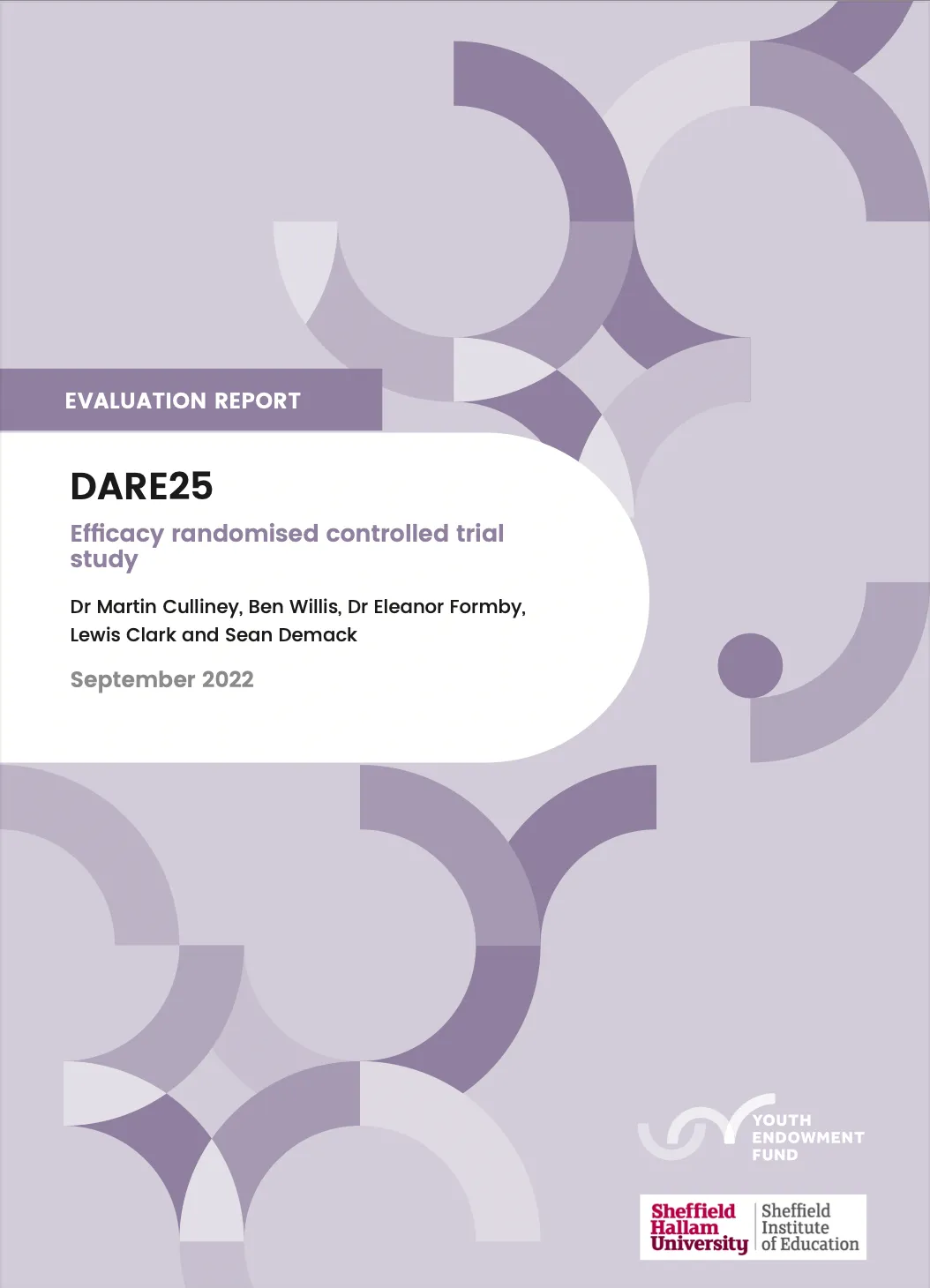
DARE25 is a school-based programme that aims to encourage children to make safer, healthier and more informed choices and keep them safe from involvement in crime and violence. In this project, Year 6 pupils(aged 10-11) received a programme of 10 weekly one-hour lessons, followed by a graduation ceremony. Lessons were provided to all children (rather than a targeted group) and were led and delivered by a trained DARE Officer in the children’s regular classroom, with the class teacher present. Delivered by Nottinghamshire-based charity Life Skills Education, lessons involved role play, discussion groups, and reading and writing exercises.They aimed to provide information (on various topics including dealing with stressful situations, peer pressure, and balancing risks and consequences) and develop skills (such as communication, stress management and strategies for resisting peer pressure).
This evaluation of DARE25 aimed to ascertain the impact of the programme on behavioural and emotional problems among Year 6 pupils (as measured by the self-reported Strengths and Difficulties Questionnaire and the Problem Behaviour Frequency Scale). Experiencing these problems is associated with later involvement in crime and violence. The evaluation included a randomised controlled trial involving 3,881 children in 121 schools. Sixty-three schools received the programme in the academic year 2020/21, while 58 control schools did not. All schools were in Nottinghamshire, Derbyshire, Leicestershire, Northamptonshire, South Yorkshire, West Yorkshire or Lincolnshire. The evaluation also featured a process evaluation, comprising of interviews, remote lesson observations and virtual school visits (including teacher interviews and pupil focus groups). This process evaluation explored the factors that influenced the delivery of DARE25, perceptions of the programme and how scalable DARE25 may be. The trial took place in 2020/21, with schools receiving the programme from April-July2021. Both delivery and evaluation therefore took place during the COVID-19 pandemic, requiring both the evaluators and delivery team to adapt.